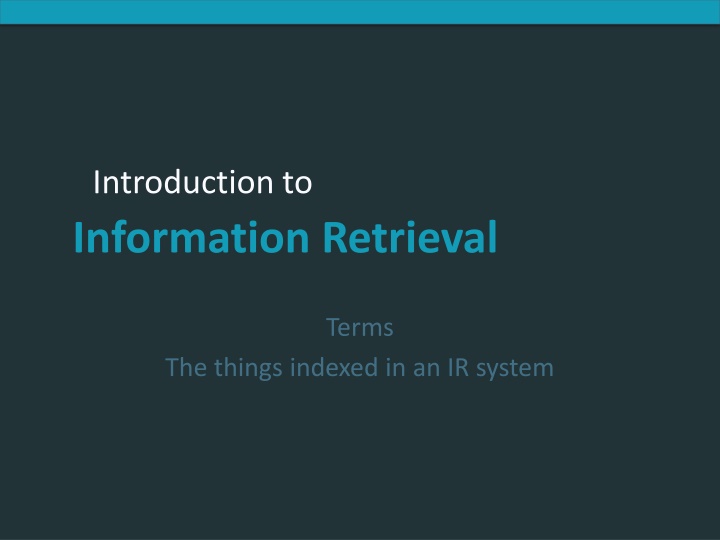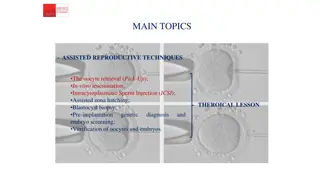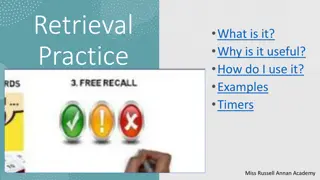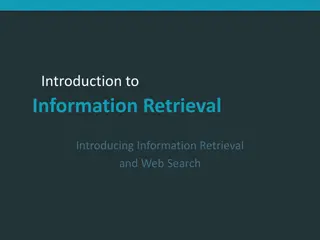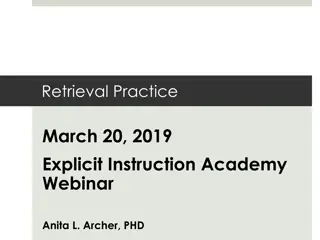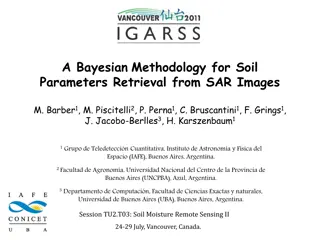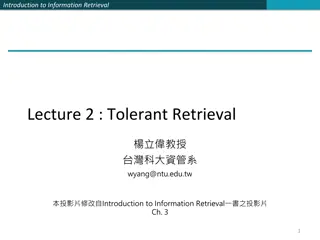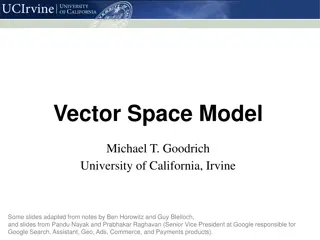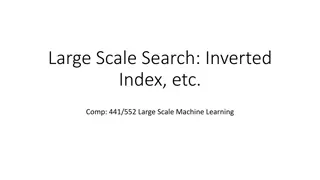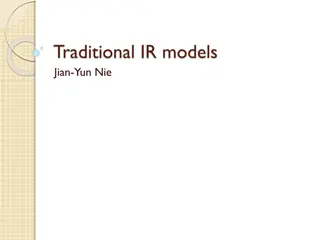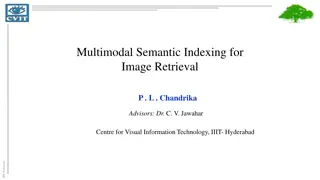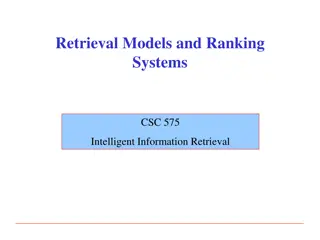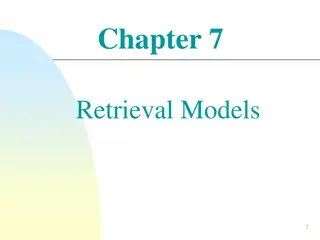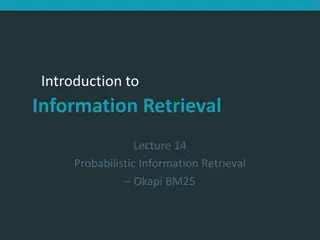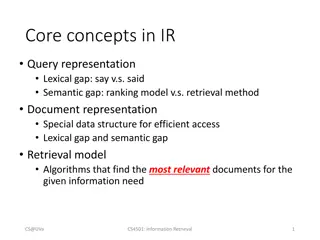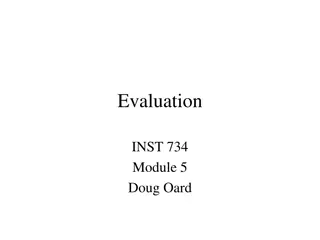Information Retrieval Techniques
Information retrieval involves various techniques such as stop words exclusion, normalization of terms, language-specific normalization like accents and date forms, and case folding to enhance search efficiency. These methods aim to improve query matching by standardizing and optimizing indexed text and query terms.
Download Presentation

Please find below an Image/Link to download the presentation.
The content on the website is provided AS IS for your information and personal use only. It may not be sold, licensed, or shared on other websites without obtaining consent from the author.If you encounter any issues during the download, it is possible that the publisher has removed the file from their server.
You are allowed to download the files provided on this website for personal or commercial use, subject to the condition that they are used lawfully. All files are the property of their respective owners.
The content on the website is provided AS IS for your information and personal use only. It may not be sold, licensed, or shared on other websites without obtaining consent from the author.
E N D
Presentation Transcript
Introduction to Information Retrieval Introduction to Information Retrieval Terms The things indexed in an IR system
Sec. 2.2.2 Introduction to Information Retrieval Stop words With a stop list, you exclude from the dictionary entirely the commonest words. Intuition: They have little semantic content: the, a, and, to, be There are a lot of them: ~30% of postings for top 30 words But the trend is away from doing this: Good compression techniques (IIR 5) means the space for including stop words in a system is very small Good query optimization techniques (IIR 7) mean you pay little at query time for including stop words. You need them for: Phrase queries: King of Denmark Various song titles, etc.: Let it be , To be or not to be Relational queries: flights to London
Sec. 2.2.3 Introduction to Information Retrieval Normalization to terms We may need to normalize words in indexed text as well as query words into the same form We want to match U.S.A. and USA Result is terms: a term is a (normalized) word type, which is an entry in our IR system dictionary We most commonly implicitly define equivalence classes of terms by, e.g., deleting periods to form a term U.S.A.,USA USA deleting hyphens to form a term anti-discriminatory, antidiscriminatory antidiscriminatory
Sec. 2.2.3 Introduction to Information Retrieval Normalization: other languages Accents: e.g., French r sum vs. resume. Umlauts: e.g., German: Tuebingen vs. T bingen Should be equivalent Most important criterion: How are your users like to write their queries for these words? Even in languages that standardly have accents, users often may not type them Often best to normalize to a de-accented term Tuebingen, T bingen, Tubingen Tubingen
Sec. 2.2.3 Introduction to Information Retrieval Normalization: other languages Normalization of things like date forms 7 30 vs. 7/30 Japanese use of kana vs. Chinese characters Tokenization and normalization may depend on the language and so is intertwined with language detection Is this Morgen will ich in MIT German mit ? Crucial: Need to normalize indexed text as well as query terms identically
Sec. 2.2.3 Introduction to Information Retrieval Case folding Reduce all letters to lower case exception: upper case in mid-sentence? e.g., General Motors Fed vs. fed SAIL vs. sail Often best to lower case everything, since users will use lowercase regardless of correct capitalization Longstanding Google example: [fixed in 2011 ] Query C.A.T. #1 result is for cats (well, Lolcats) not Caterpillar Inc.
Sec. 2.2.3 Introduction to Information Retrieval Normalization to terms An alternative to equivalence classing is to do asymmetric expansion An example of where this may be useful Enter: window Search: window, windows Enter: windows Search: Windows, windows, window Enter: Windows Search: Windows Potentially more powerful, but less efficient
Introduction to Information Retrieval Thesauri and soundex Do we handle synonyms and homonyms? E.g., by hand-constructed equivalence classes car = automobile color = colour We can rewrite to form equivalence-class terms When the document contains automobile, index it under car- automobile (and vice-versa) Or we can expand a query When the query contains automobile, look under car as well What about spelling mistakes? One approach is Soundex, which forms equivalence classes of words based on phonetic heuristics More in IIR 3 and IIR 9
Introduction to Information Retrieval Introduction to Information Retrieval Terms The things indexed in an IR system
